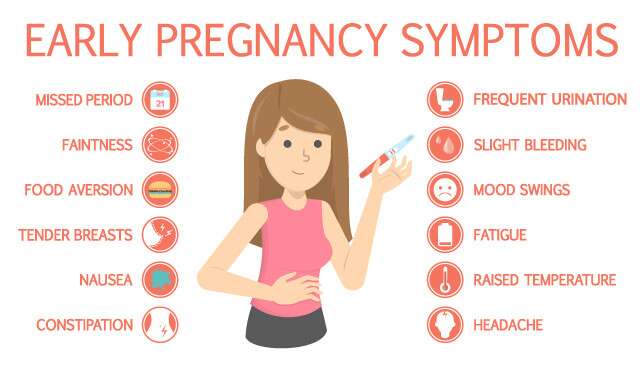
Sure Signs of Pregnancy: A Comprehensive Guide
Pregnancy is a transformative journey marked by a myriad of physical, emotional, and hormonal changes. While every woman’s experience is unique, there are certain telltale signs that can indicate the presence of a growing life within. Understanding these sure signs of pregnancy can empower women to make informed decisions about their health and the well-being of their unborn child.
Missed Period
The most common and reliable early sign of pregnancy is a missed period. When a woman becomes pregnant, her body produces the hormone human chorionic gonadotropin (hCG), which inhibits ovulation and prevents menstruation. If a woman misses her expected period, especially if she has regular cycles, it is a strong indication that she may be pregnant.
Nausea and Vomiting
Morning sickness, characterized by nausea and vomiting, is a classic symptom of pregnancy. It typically begins around the fourth week of gestation and peaks between the eighth and twelfth weeks. While the exact cause of morning sickness is unknown, it is believed to be related to hormonal changes and increased sensitivity to certain smells and foods.
Breast Tenderness
Hormonal changes during pregnancy can cause the breasts to become tender, swollen, and sensitive. The nipples may also darken and become more prominent. These changes are typically most noticeable in the first trimester and gradually subside as the pregnancy progresses.
Fatigue
Extreme fatigue is a common symptom of early pregnancy. The body is working hard to support the growing fetus, and this can lead to feelings of exhaustion. Fatigue can be especially pronounced during the first trimester, but it may persist throughout the pregnancy.
Frequent Urination
As the uterus expands during pregnancy, it puts pressure on the bladder, causing frequent urination. This symptom typically begins around the sixth week of gestation and becomes more pronounced as the pregnancy advances.
Darkening of the Areolas
The areolas, the pigmented areas around the nipples, may darken during pregnancy. This is due to increased production of melanin, a pigment that is responsible for skin color. The areolas may also become larger and more prominent.
Elevated Basal Body Temperature
A woman’s basal body temperature (BBT), the lowest temperature reached during sleep, typically rises by about 0.5-1.0 degrees Fahrenheit after ovulation. If a woman’s BBT remains elevated for more than two weeks after ovulation, it may be a sign of pregnancy.
Implantation Bleeding
Some women experience light spotting or bleeding around the time of implantation, which occurs when the fertilized egg attaches to the lining of the uterus. Implantation bleeding is typically lighter and shorter in duration than a menstrual period.
Positive Pregnancy Test
A home pregnancy test can detect the presence of hCG in urine. These tests are available over-the-counter and can provide a quick and convenient way to confirm pregnancy. However, it is important to note that home pregnancy tests can sometimes produce false positives or false negatives.
Confirmation by a Healthcare Provider
While the signs discussed above can provide strong indications of pregnancy, it is essential to consult with a healthcare provider for confirmation. A healthcare provider can perform a physical exam, order blood tests to measure hCG levels, and perform an ultrasound to visualize the developing fetus.
Other Possible Signs
In addition to the sure signs of pregnancy, there are a number of other symptoms that may suggest the presence of a growing life. These include:
- Food cravings or aversions
- Mood swings
- Headaches
- Bloating
- Constipation
- Back pain
- Skin changes
It is important to note that not all women experience all of these symptoms, and the severity of symptoms can vary greatly from person to person. If you are experiencing any of these symptoms and suspect you may be pregnant, it is crucial to consult with a healthcare provider for evaluation.
Importance of Early Detection
Early detection of pregnancy is essential for ensuring the health and well-being of both the mother and the developing fetus. Prenatal care can help to identify and manage any potential risks, promote healthy fetal development, and prepare the mother for childbirth.
Conclusion
Understanding the sure signs of pregnancy can empower women to make informed decisions about their health and the well-being of their unborn child. While these signs can provide strong indications of pregnancy, it is essential to consult with a healthcare provider for confirmation and ongoing prenatal care. By recognizing and responding to these signs, women can ensure a healthy and fulfilling pregnancy journey.